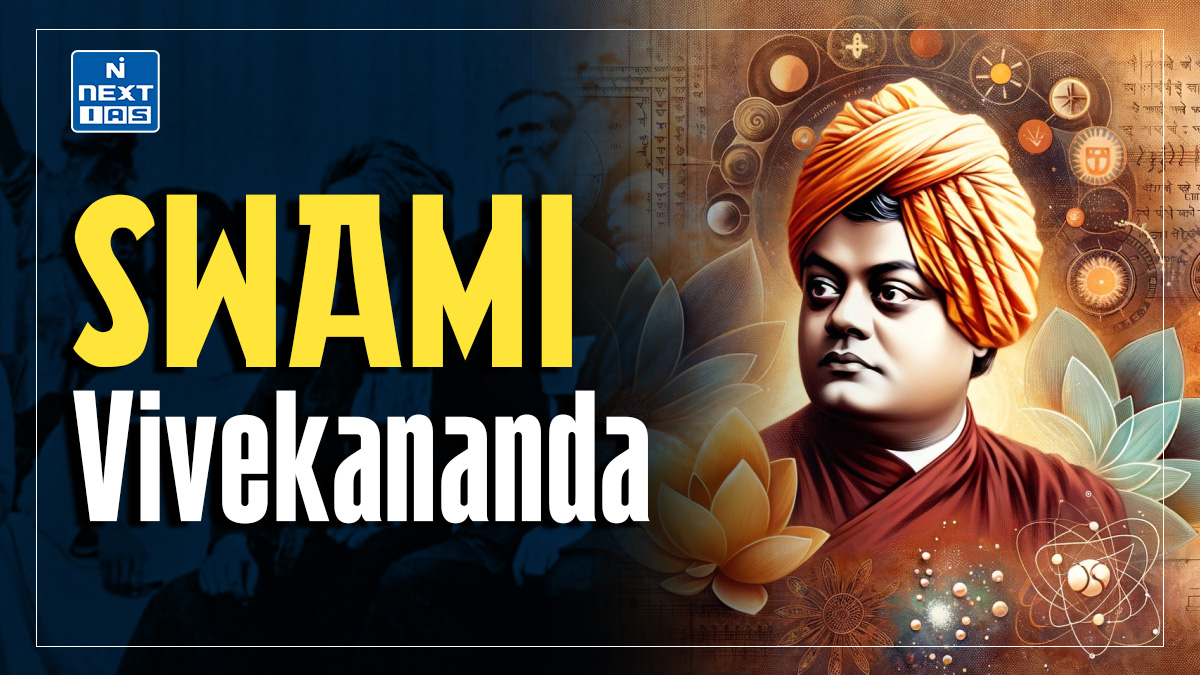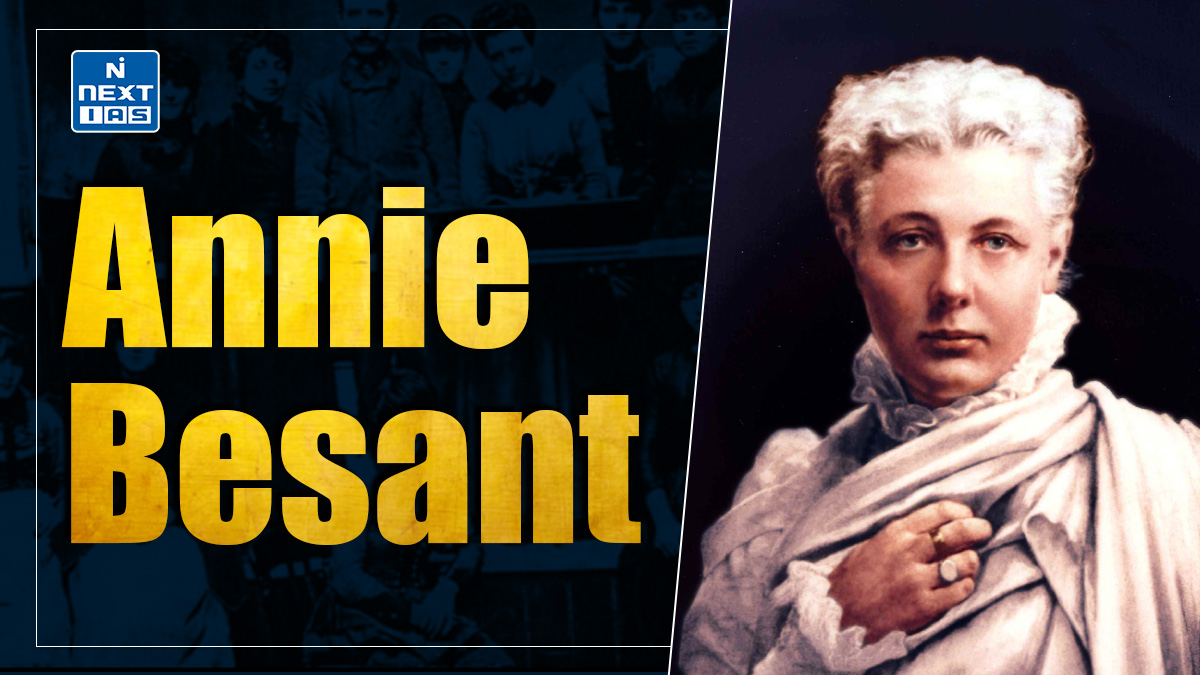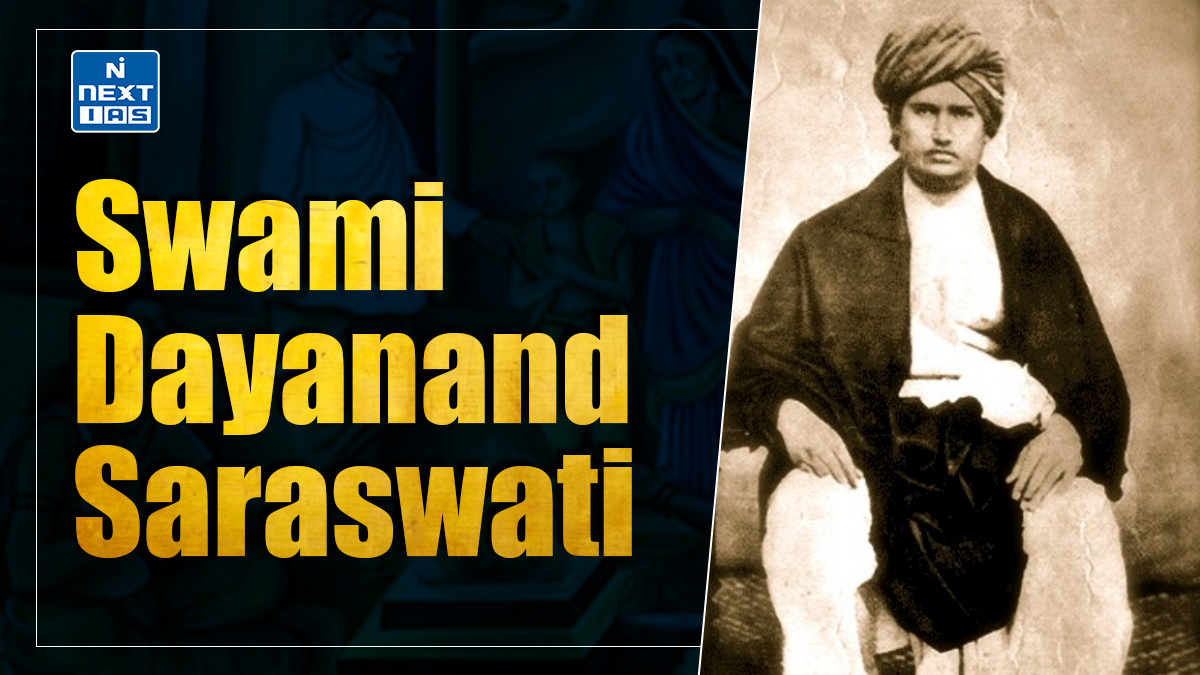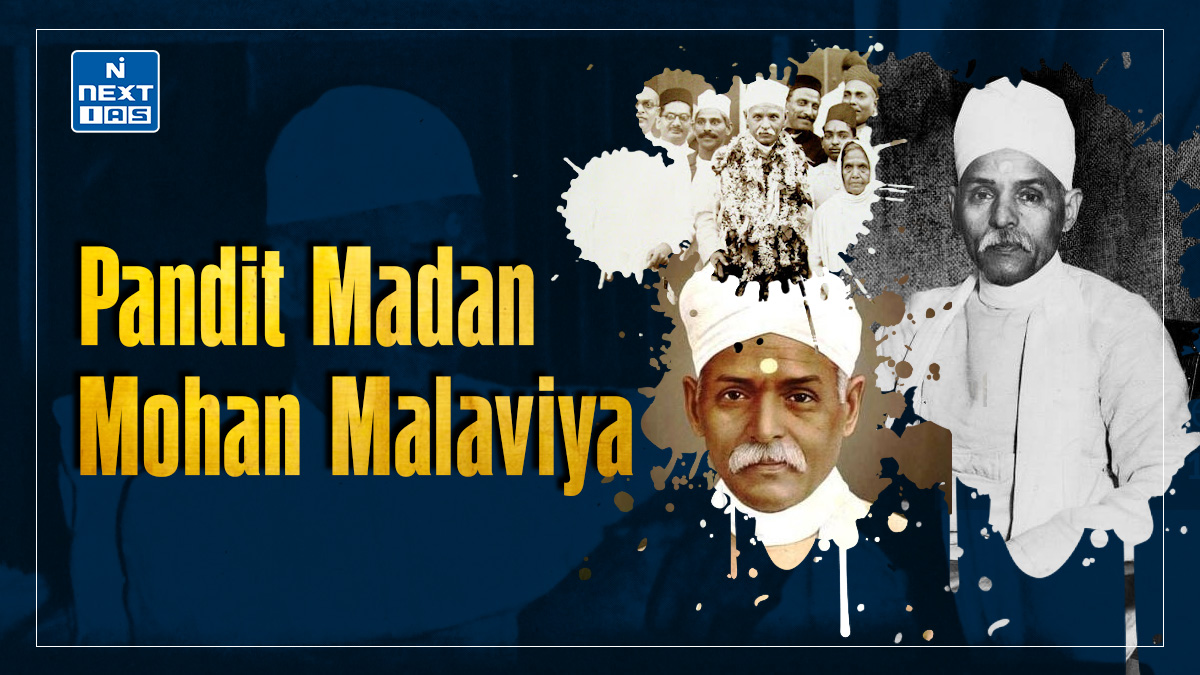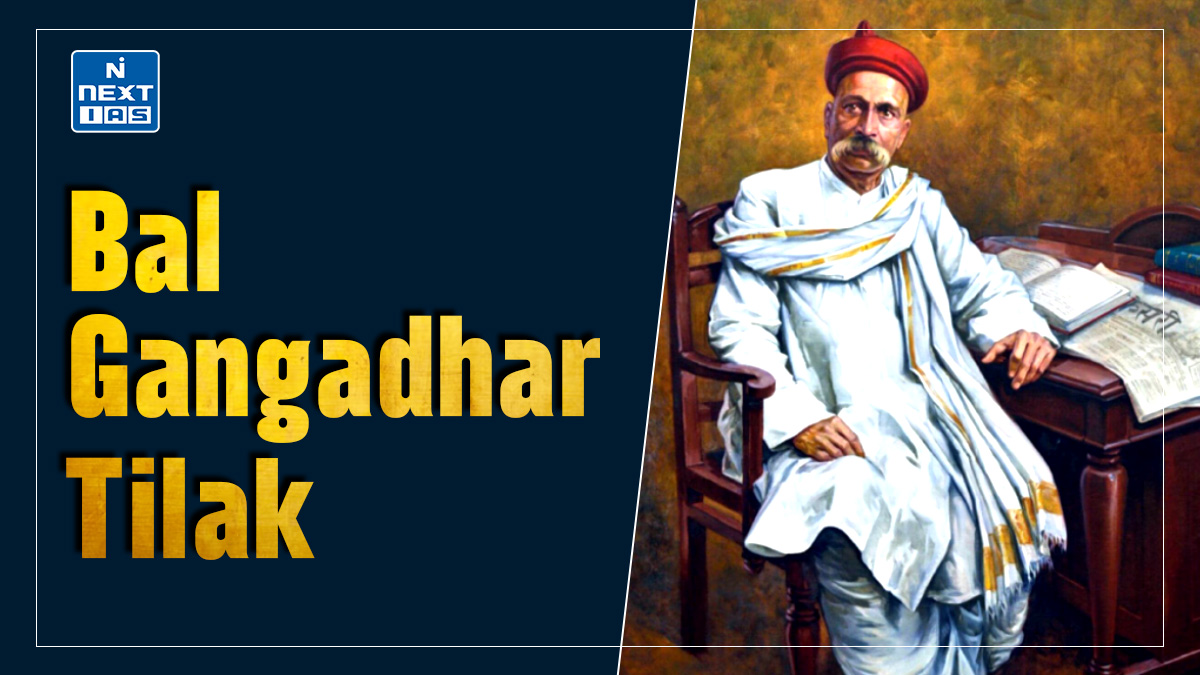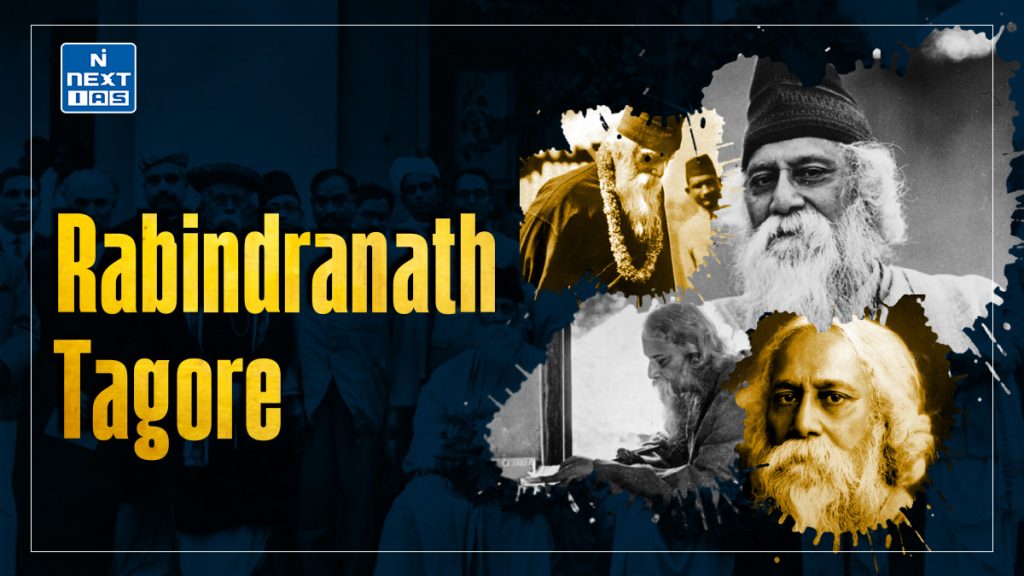
Rabindranath Tagore, often referred to as the Bard of Bengal, was a Nobel Prize-winning poet, philosopher, and social reformer who profoundly influenced modern Indian literature and thought. His ideas on universalism, education, and cultural renaissance continue to inspire generations worldwide. This article aims to study in detail the life, ideology, contributions, and legacy of Rabindranath Tagore, highlighting his role in shaping modern India and global humanism.
About Rabindranath Tagore
- Rabindranath Tagore (1861–1941) was a visionary poet, philosopher, and social reformer who reshaped Indian literature and the cultural identity of modern India.
- His multifaceted contributions to art, education, and society earned him global recognition, making him the first non-European to win the Nobel Prize for Literature in 1913.
Biography of Rabindranath Tagore
- Rabindranath Tagore (1861–1941) was a prolific Indian poet, philosopher, artist, and Nobel laureate who reshaped Bengali literature and music.
- Born in Calcutta to a prominent family, Tagore began writing poetry at an early age and published his first collection by 16.
- His magnum opus, Gitanjali, earned him the Nobel Prize in Literature in 1913, making him the first non-European laureate.
- A visionary thinker, he founded Visva-Bharati University to promote holistic education.
- Tagore’s contributions to Indian culture include composing India’s national anthem, Jana Gana Mana.
- His legacy as a global cultural ambassador endures through his timeless works and ideas.
Contributions of Rabindranath Tagore to Literature and Art
- Tagore’s literary genius found expression in poetry, novels, short stories, and plays.
- His poetic masterpiece Gitanjali won him the Nobel Prize, and his works like The Home and the World provided critical commentary on Indian nationalism and modernity.
- Tagore also composed the national anthems of two nations: India’s Jana Gana Mana and Bangladesh’s Amar Sonar Bangla.
Rabindranath Tagore as Social Reformer
- As a reformer, Tagore championed progressive ideas.
- He denounced imperialism and protested the atrocities of British rule, as evidenced by his renunciation of knighthood after the Jallianwala Bagh massacre.
- He also founded Visva-Bharati University in 1901, an institution that emphasized holistic and multicultural education, blending Eastern and Western ideals.
Ideology of Rabindranath Tagore
- Tagore was a humanist and universalist who believed in the unity of mankind beyond national and cultural boundaries.
- His philosophy promoted tolerance, spiritual values, and the idea of a global culture rooted in mutual respect and shared humanity.
- He was critical of imperialism, describing it as a symptom of deeper societal issues, and advocated for a harmonious coexistence of diverse cultures.
Rabindranath Tagore on Nationalism
- Rabindranath Tagore, a towering figure in Indian literature and philosophy, was a staunch advocate of nationalism rooted in humanism and universal values.
- While he cherished India’s cultural heritage, he rejected narrow, aggressive nationalism, emphasizing unity in diversity.
- Tagore believed in the spiritual and moral awakening of the nation rather than mere political freedom.
- His works, such as Gitanjali and the iconic song Jana Gana Mana, India’s national anthem, reflect his vision of a harmonious and progressive India.
- Tagore inspired generations to aspire for a nation built on freedom, justice, and compassion through his writings and teachings.
Legacy of Rabindranath Tagore in India’s Freedom Struggle
- Although Tagore did not directly lead political movements, his writings inspired India’s fight for independence.
- His works, such as Manasi and his fiery letters to British officials, became moral and intellectual weapons against colonial rule.
- He actively criticized the partition of Bengal and urged unity among Indians through cultural and intellectual resistance.
Differences Between Rabindranath Tagore and Mahatma Gandhi
The relationship between Rabindranath Tagore and Mahatma Gandhi was one of mutual respect but significant ideological differences.
| Dimension | Mahatma Gandhi | Rabindranath Tagore |
| Swadeshi Movement | Advocated burning foreign goods as a symbol of economic resistance. | Opposed burning foreign goods, considering it destructive and negative. |
| Non-Cooperation | Saw non-cooperation as a moral duty and a positive form of resistance. | Feared non-cooperation might lead to unrestrained violence. |
| Charkha (Spinning Wheel) | Symbolized self-reliance and unity. | Viewed it as limiting intellectual growth and creativity. |
| Education | Advocated practical education through crafts to foster self-sufficiency. | Emphasised creativity and rural engagement, advocating open-air classes and innovation. |
| Nationalism | Believed in a self-sufficient nationalism based on moral values. | Advocated a broader humanistic perspective, emphasising cultural unity over political nationalism. |
Similarities Between Rabindranath Tagore and Mahatma Gandhi
Despite their differences, both leaders shared common ground in several areas:
- Humanism: Both were deeply committed to human values and non-violence.
- Village Development: Advocated for the upliftment of villages through sustainable practices and education.
- Spirituality: Shared a profound spiritual outlook, seeing humanity as interconnected and divine.
Conclusion
Rabindranath Tagore’s vision extended beyond the confines of politics and nationalism to a universalist perspective that celebrated humanity’s shared values. While he and Gandhi occasionally diverged in their methods and philosophies, their combined legacies have profoundly shaped modern India’s identity. Tagore’s life and work remain a beacon of cultural renaissance, intellectual freedom, and universal brotherhood.
Frequently Asked Questions (FAQs)
Who is Rabindranath Tagore?
Rabindranath Tagore was a renowned Indian poet, philosopher, and polymath who became the first non-European to win the Nobel Prize in Literature in 1913. He is best known for his literary works, including Gitanjali and contributions to Indian culture and education.
When was Rabindranath Tagore born?
Rabindranath Tagore was born on May 7, 1861, in Calcutta (now Kolkata), India.
Where the mind is without fear by Rabindranath Tagore?
Where the Mind is Without Fear is a celebrated poem from his Nobel-winning work Gitanjali. It envisions a free and progressive India, emphasising values like fearlessness, knowledge, and unity.
When did Rabindranath Tagore die?
Rabindranath Tagore passed away on August 7, 1941, in Calcutta (now Kolkata), India.

